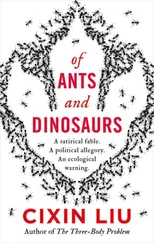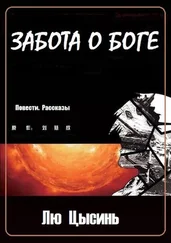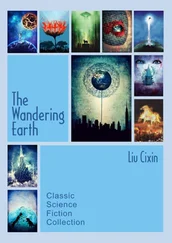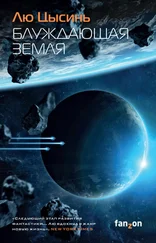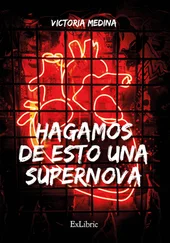No one said anything.
“I told you,” Davey said smugly to Ilyukhin. “Everyone wants to play!”
A low rumble came across the sea like spring thunder on the horizon.
“The frequency of the breakaways is increasing,” Huahua said, looking in the direction of the sound.
There was another rumble, clearer this time, from a collapse on a mountain of ice close to the shore, and they watched as a chunk of the big silver peak plunged into the ocean, kicking up a high spray. Huge waves quickly reached land and swamped a flock of penguins on the beach; the penguins waddled about in a chaotic scramble once the waves receded.
Lü Gang said, “Last week, Specs and I took the destroyer Huangshan around the barrier, and chunks kept falling off all the time. So much crashing. It’s like the whole continent is melting!”
“Half the shelf over the Ross Sea has melted. At this rate, Shanghai and New York will turn into Venice in two months,” Huahua said with concern.
Huahua, Specs, and Lü Gang were standing on the Amundsen coast of Antarctica. They had arrived on Earth’s southernmost continent a month ago. On that day, after their plane had made its final fuel stop on Tierra del Fuego and crossed the Antarctic coastline for the first time, the pilot had said, “Hey, why does the land look like a panda?” From their high altitude the patchy black-and-white land was vastly different from the expanse of silvery white the children had always pictured in their minds. It was a new face for the continent. A ten-thousand-year-old snowpack was melting, revealing the black stone and dirt of the ground beneath. The patch beside the ocean on which the three children now stood was new ground free from snow. The polar sun hung low on the horizon, casting three long shadows behind them. The wind remained cold, but it had lost its bite, and it carried the damp breath of early spring, a flavor previously unknown here.
“Check this out.” Lü Gang bent down and plucked a small plant from the dirt. It was a weird-looking thing, dark green with thick leaves.
Huahua said, “Those things are everywhere. I’ve heard they’re prehistoric vegetation, extinct everywhere else in the world. Their seeds were preserved in the Antarctic soil, and now they’ve been resurrected after the climate change.”
“Antarctica was warm once, long ago. The world keeps on oscillating,” Specs said.
* * *
The armies of the countries taking part in the World Games were assembling in Antarctica. So far, 102 army divisions, with roughly 1.5 million soldiers, had arrived, including twenty-five divisions from the US, twenty from China, eighteen from Russia, twelve from Japan, eight from Europe, and nineteen from other countries. Even if they managed only a single company, practically all of the countries in the world were participating. Troops were still coming in by sea and air, and many countries were shipping materials and troops through waypoints in Argentina and New Zealand.
Since the majority of armies were using Argentina as a transit base and setting off for Antarctica from ports and airports in the southern part of the country, they made landfall across the Drake Passage on the Antarctic Peninsula. But they eventually realized that the peninsula was too narrow for large-scale war games, and so the gaming region was set in the broader region of Marie Byrd Land. In that vast wilderness, countries were at work building their own land bases; to facilitate bringing in supplies directly from the ocean, the bases were clustered near the shore of the Amundsen Sea, along a long, narrow strip between Thurston Island and Cape Dart, spaced anywhere from fifty to a hundred kilometers apart.
* * *
The three children watched the breakaways from the shore for a while, and then reboarded one of the three tracked all-terrain vehicles that were waiting. The small convoy set off to the west, heading to the American base for the first meeting of countries participating in the war games. The original plan had been to go by helicopter, but the three young leaders wanted to see the region up close and in person, so they went overland. Passable roads had not yet been cleared between the different countries’ bases, so they had to resort to specialized vehicles originally intended for polar scientific expeditions during the adults’ era.
The scenery was monotonous. The left-hand side fluctuated between black exposed ground and white snow cover, and the terrain was predominantly level with low-lying hills. To the right was the Amundsen Sea and its host of icebergs, and a surface littered with chunks of various sizes broken off from the ice shelf. Farther out were the ships of various countries at anchor. The Ross and Amundsen Seas now held more than fifteen thousand ships, forming the largest fleet ever recorded in human history. They included aircraft carriers and supertankers, like ocean-borne iron cities, as well as fishing vessels of just a few hundred tons. It was this gigantic fleet that had delivered more than a million people and an enormous quantity of material to this desolate continent, and had replaced the loneliness of the Southern Ocean with crowded noise, as if an endless chain of cities had sprung out of the water.
After they had driven for over an hour, a spread of field tents and huts appeared alongside the road: the Japanese base. Teams of Japanese children were doing drills on the beach. They sang military songs in unison as they marched exuberantly with uniform steps. But what caught the Chinese children’s eye was a huge humpback whale lying on the beach, thick pink slabs of flesh and dark-colored organs visible in its sliced-open belly. A group of Japanese children were clambering over its body like a horde of ants crawling over a fish, hacking away huge chunks of whale meat with power saws, and loading them by crane onto a truck to ship back to camp.
The Chinese children got out of their vehicle and stood quietly off to one side. The whale, it turned out, was still alive, and its mouth twitched and the one cloudy eye that faced upward, big as a truck tire, stared at them lifelessly. A few Japanese kids emerged from the belly of the huge animal drenched in blood, straining under the effort of carrying a huge, dark red organ: whale liver. The crane loaded it onto a truck, where it filled up the entire bed and quivered there, steaming. One kid holding a paratrooper knife climbed aboard and cut a few pieces off the liver and tossed them out to a pack of army dogs beneath the truck. The entire scene, the circle of bloodstained snow, the vivisected whale, the children on top of it slicing pieces of flesh, the blood-smeared crane and trucks, the dogs wrestling for scraps on the bloody snow, and the ocean, stained crimson by two rivers of whale blood, was a surreal picture of horror.
Lü Gang said, “The Japanese fleet has been using depth charges against whales in the Ross and Amundsen Seas, stunning them and then dragging them ashore. One charge can stun a whole pod.”
“A century of efforts to protect the whales could be destroyed in a single day,” Specs said with a sigh.
A few Japanese children recognized them and jumped off the whale’s body and raised their bloodstained gloved hands in a salute. Then they climbed back up and went back to work.
Specs said to Huahua and Lü Gang, “I’ve got just one question, and I’d like you to answer me truthfully. When you were young, did you ever truly treasure life, in your heart of hearts?”
“No,” Huahua said.
“No,” Lü Gang said. “When I was at the army with my dad, every day when I got out of class I’d play with the boys from the local villages. We’d shoot birds and catch frogs, and when I saw those little creatures die at my hands, I didn’t feel anything in particular. The others were the same.”
Читать дальше
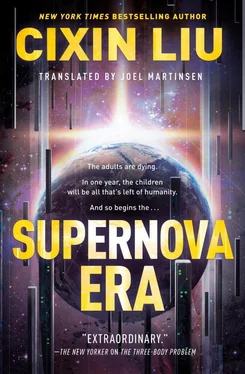
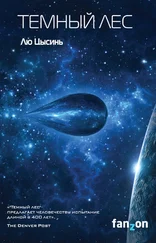
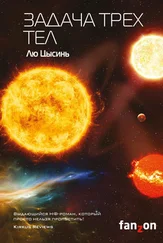
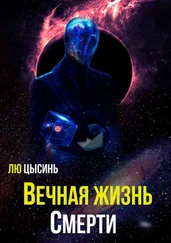
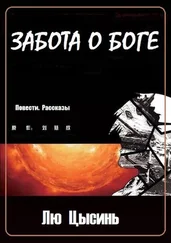
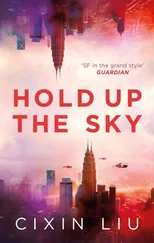
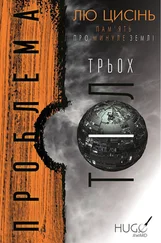
![Лю Цысинь - Эпоха сверхновой [litres]](/books/393110/lyu-cysin-epoha-sverhnovoj-litres-thumb.webp)
